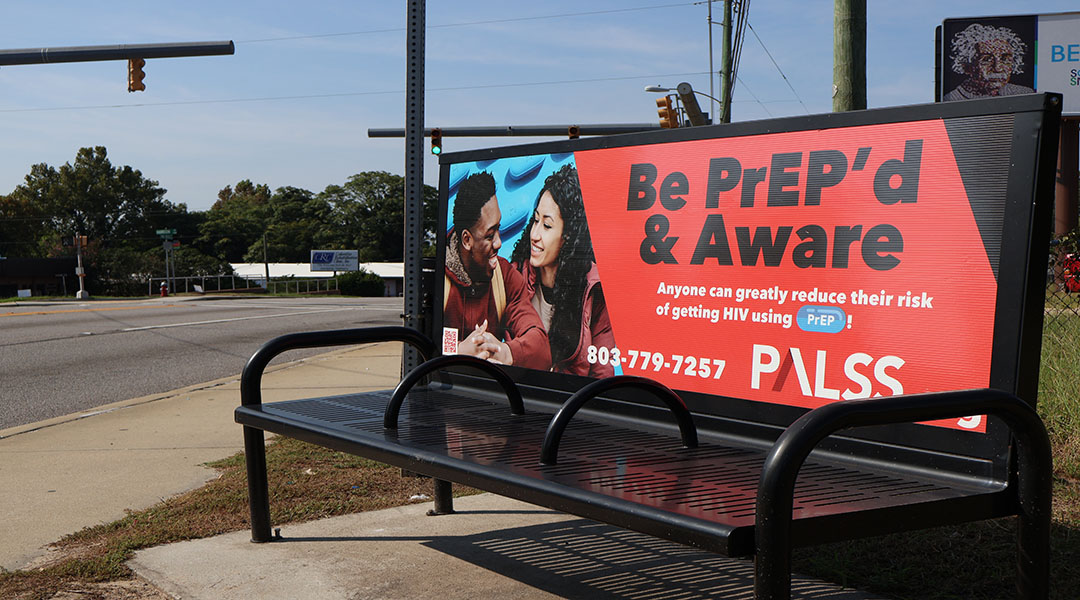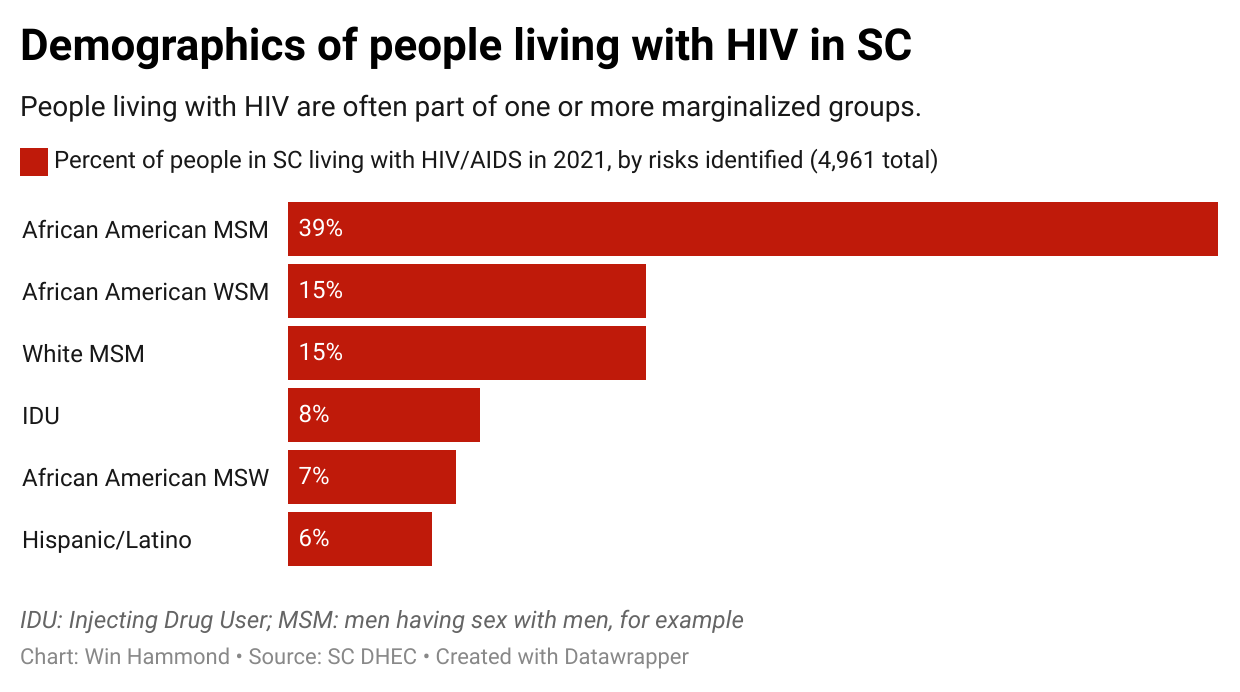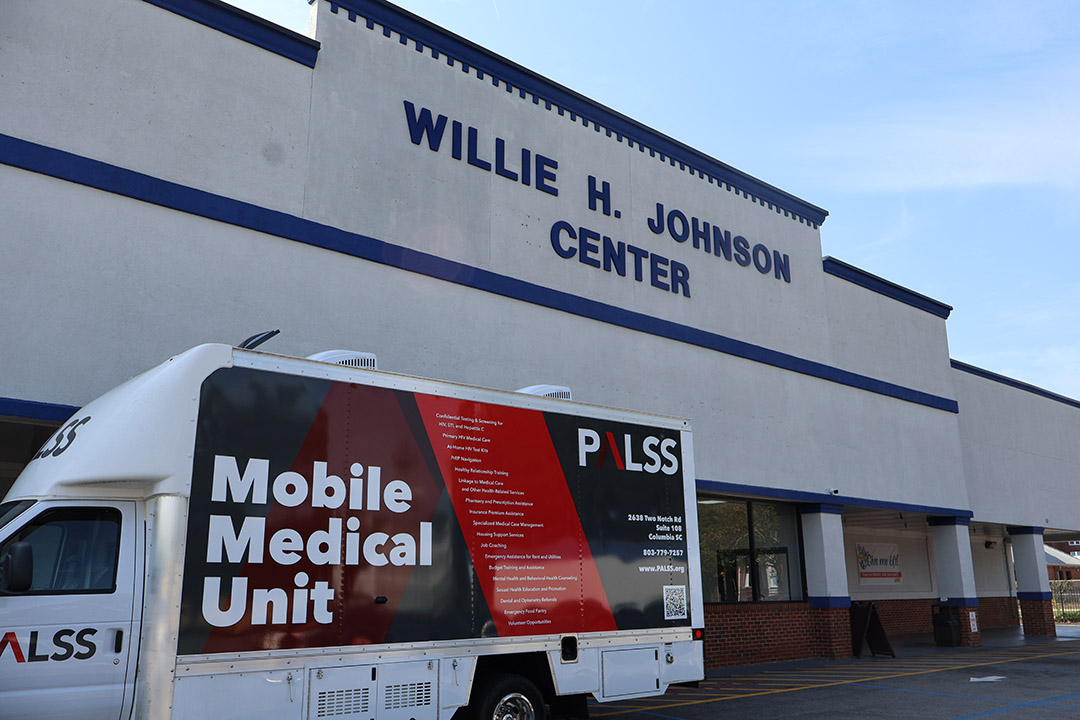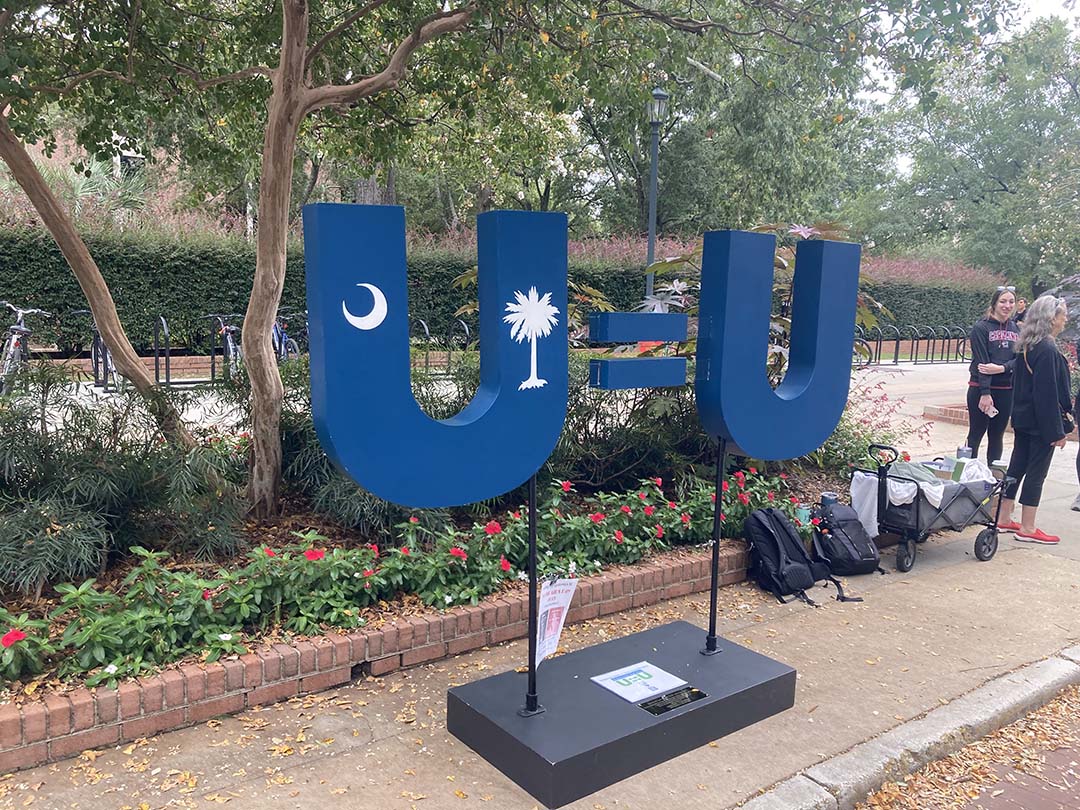A bench on Two Notch Road advertises PrEP, just down the street from two HBCUs: Allen University and Benedict College. (Photos by Win Hammond/Carolina News and Reporter)
Accessible HIV testing is advertised by the state government and nonprofits throughout the year, but making HIV care the most accessible it’s ever been is a constant effort.
Sept. 25 to 29 marks the state Department of Health and Environmental Control’s PrEP Awareness Week.
PrEP stands for pre-exposure prophylaxis drugs. They’re the medicines that reduce your chances of getting HIV from sex or injected drug use, according to the federal Centers for Disease Control and Prevention.
PrEP week started in 2015 and provides HIV prevention education. Representatives from nonprofits across the state visit college campuses and community centers to hand out educational materials and offer free HIV testing.
HIV/AIDS is a disease that primarily affects marginalized groups and people of color and can be avoided with the right education and resources. And organizations target places where many people living with HIV gather.
So, historically black colleges see the most health care visitors, since at 39% of the population, the largest group of people living with HIV in South Carolina are Black men who have sex with other men.
The responsibility to make HIV care accessible doesn’t always fall to the government. Nonprofits and other organizations do the most HIV testing and treat the most patients.
The reason for the nonprofits’ role is simple, both they and state officials say: The nonprofits’ communities trust them.
Free and accessible testing is available outside of PrEP, but that responsibility is borne community-based organizations that many say are better at reaching those most vulnerable to HIV.
State government offers HIV testing on specific dates.
Columbia-based nonprofit Palmetto AIDS Life Support Services offers testing year-round. It receives $200,000 per year from DHEC over a five-year funding period specifically for testing and services.
University of South Carolina Public Health Clinical Associate Professor Dr. Edena Guimaraes said she worked for the health department for about nine years.
Guimaraes said entities other than the state government giving free HIV testing is better for everyone.
The most common demographics of people living with HIV are the poor, the homeless and portions of minority groups.
Guimaraes said before HIV testing was done orally – and results were turned back to patients in 20 minutes – test results would have to be returned in the mail or in person. Returning results to homeless patients, for instance, was rare.
Testing is more accessible than ever with the help of community-based organizations, and works better with the health department overseeing all testing, Guimaraes said.
Head of the HIV/STD division of the health department, Tony Price, said that even though DHEC advertises free testing in observance of PrEP week or World AIDS Day on Dec. 1, the health department and many clinics aren’t going to turn anyone away, because of financial barriers or any other reason.
“If someone says they don’t have any insurance, and they’ve got absolutely zero dollars to pay – no credit card or whatever – they’ll be able to ask for and get an HIV test at the health department,” Price said.
Eliminating access to testing would be detrimental to public health, he said. Testing is the “gateway” to accessing HIV services. Services have to go to patients and people at risk, not the other way around, he said.
HIV is stigmatized, and many people won’t seek out care unless it’s made more approachable, Price said.
“HBCU campuses – they’re right there – they’re gonna have an informational, educational and hopefully a fun event.” Price said. “(Organizations) can provide to folks in their parking lot or, in a nearby setting, where people feel comfortable.”





